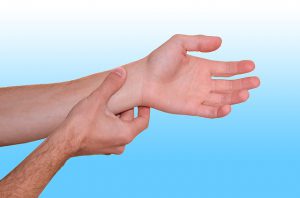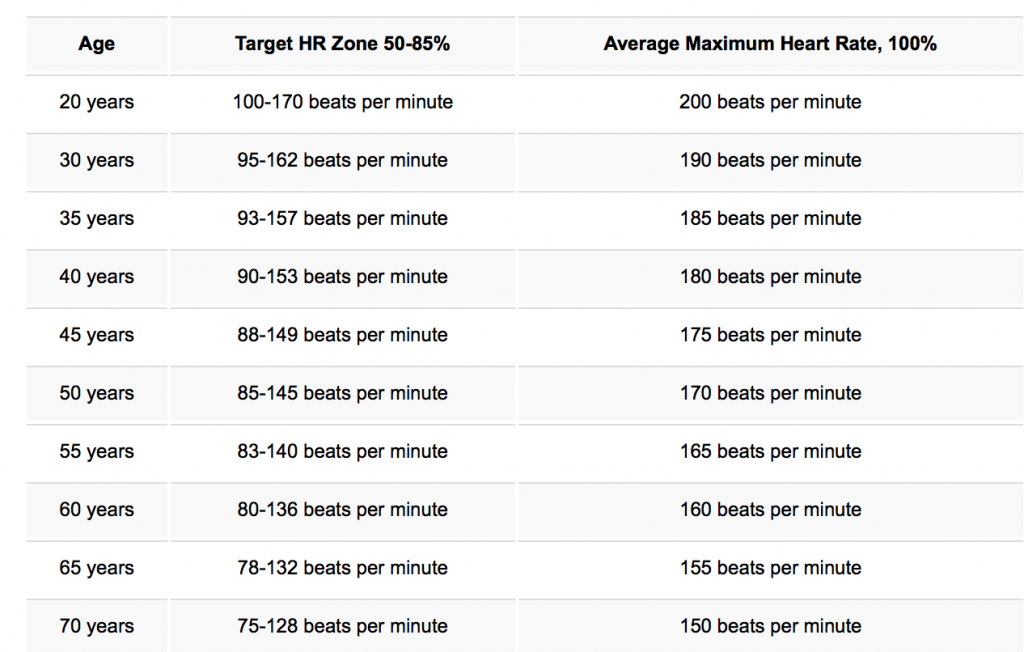Your heart rate, also referred to as your pulse is the number of times your heart beats per minute. Normal heart rate varies by individual, but knowing and understanding your heart rate is extremely important because changes to your heart rate can affect your health.
How do you check your heart rate?
In order to check your heart rate, you must first find your pulse. These are the best places to check your pulse:

- wrists
- inside of your elbow
- side of your neck
- top of the foot
Set a timer to 60 seconds. Put your finger over your pulse, start the timer or count the number of beats in 60 seconds. The result at the end of 60 seconds is your resting heart rate. Resting heart rate is the lowest level of blood your body needs when not exercising. This is the rate you get when you are calm, relaxed, sitting or lying down.
On average, resting heart rates range from 60-100 BPM (beats per minute)

This chart is a guide showing you average to maximum target hear rates
Why is all of this important?
Your heart rate could change and as a result could require medical attention. It is so important for you to pay attention to your body and your overall health.
These factors that may change your heart rate
- medications
- your age
- excercise
- stress
- body size
- air temperature
- body position
- lack of sleep
- dehydration
Follow these steps to maintain a healthy heart

- Lose weight
- Exercise 30 minutes daily
- Reduce your stress level try meditation and relaxation exercises
- Get some rest
- Don’t smoke
- eat balanced meals
Call your doctor if
- your pulse is really low
- you’re taking a beta blocker to decrease your heart rate and want to be sure your numbers are ok
- your pulse is really high
- you feel dizzy, light-headed or faint




jessie palaypay
Is it okay to have a resting heart rate below 60 beats per minute? I hear this is a common thing for athletes that are extremely in shape.
I am asking because you say that it is a cause for concern to see a doctor if you have a low pulse rate.
Lorrie Pearson
HI Jessie, Thanks for asking this great question. Athletes and those that are in excellent shape or highly conditioned can have a resting heart rate between 40 and 60 beats per minute. This rate can also be noticed when the average person is sleeping.